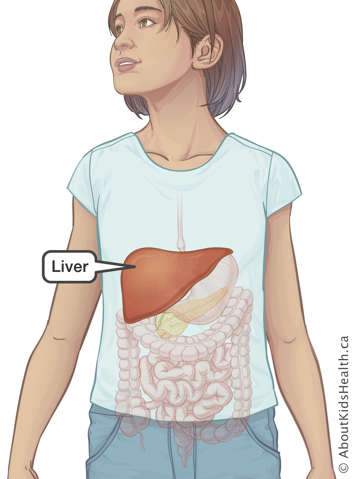Will my hepatitis C ever go away?
For most people, hepatitis C does not go away on its own. It might stay with you for your whole life. There are medicines that can cure hepatitis C that your health-care team may offer to you. Most people will receive medicine to cure their hepatitis C at some point in their lifetime. To stay healthy when you have hepatitis C, it is important to take care of yourself and your liver.
How do I take care of my liver?
The best way to take care of your liver is to eat healthy foods and to be
active. It is also important to see your doctor or nurse at least once a year for a check-up. You may need to have
blood work done or a picture of your liver (called an
ultrasound) so that you know your liver is healthy. When you are older, you need to be careful to avoid things that might harm your liver, like too much alcohol or certain medications.
Is there anything I should not do because of hepatitis C?
No. You can still go to school and take part in activities, just like your friends do.
Who do I have to tell about my hepatitis C?
People who should know about your hepatitis C are your doctors, nurses and dentist. Other people do not have to know about your hepatitis C unless you want them to. You decide who you tell about hepatitis C. If you tell someone about hepatitis C, you have to teach them about it. It is a good idea if you talk to your mom, dad or the person that takes care of you before you tell anyone about your hepatitis C so they can help you explain it properly.
